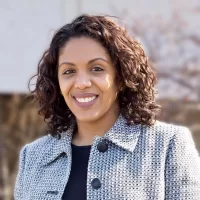
Eleven professors at Bates College have received promotions, including tenure awards, effective Aug. 1, 2023. The promotions were recommended by the faculty’s Committee on Personnel and approved by the Bates College Board of Trustees.
This year’s promotions comprise nine promotions from assistant professor to associate professor with tenure, and two promotions from associate professor to professor.
“These 11 professors represent the essence of intellectual and creative inquiry and devotion to teaching,” said Malcolm Hill, vice president for academic affairs and dean of the faculty.
“Each of these professors, through their courses, professional activities, and engagement with our community, explore and create narratives that shape our understanding of the human experience. These professors are champions of our students, foster connections, and create a vibrant community of learners, exemplifying the transformative potential of a Bates education. We are all honored to have them as colleagues.”
Below are profiles of these 11 newly promoted faculty members, featuring their areas of scholarly expertise, an example of a Bates course they teach, and, in their words, what being a Bates professor means to them.
(Note: The “terminal degree” for each professor noted below is the degree recognized as the highest available in their academic field.)
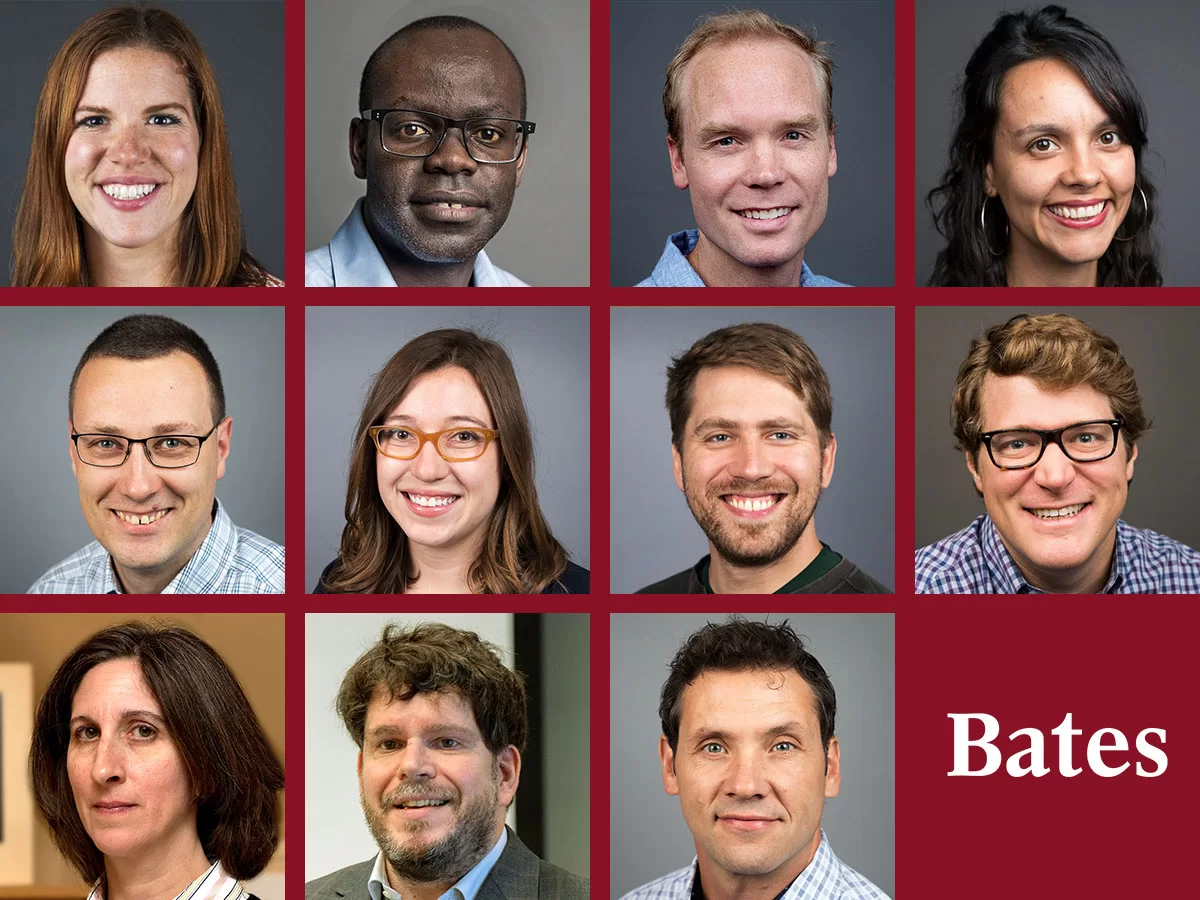
Wes Chaney, promoted to Associate Professor of History
Terminal-degree institution: Stanford University (Ph.D.)
Areas of research: Chinese history; the social, environmental, and legal history of the Qing Empire (1644-1912); and Tibetan and Inner Asian history.
Courses taught include: “Caravans, Khans, and Commissars: A History of Central Eurasia,” which delves into worldwide influence of Central Eurasian cultures, from mobile pastoralism to the trading of goods and ideas, through examining scholarship and exciting primary sources, including heroic epics, art, and novels.
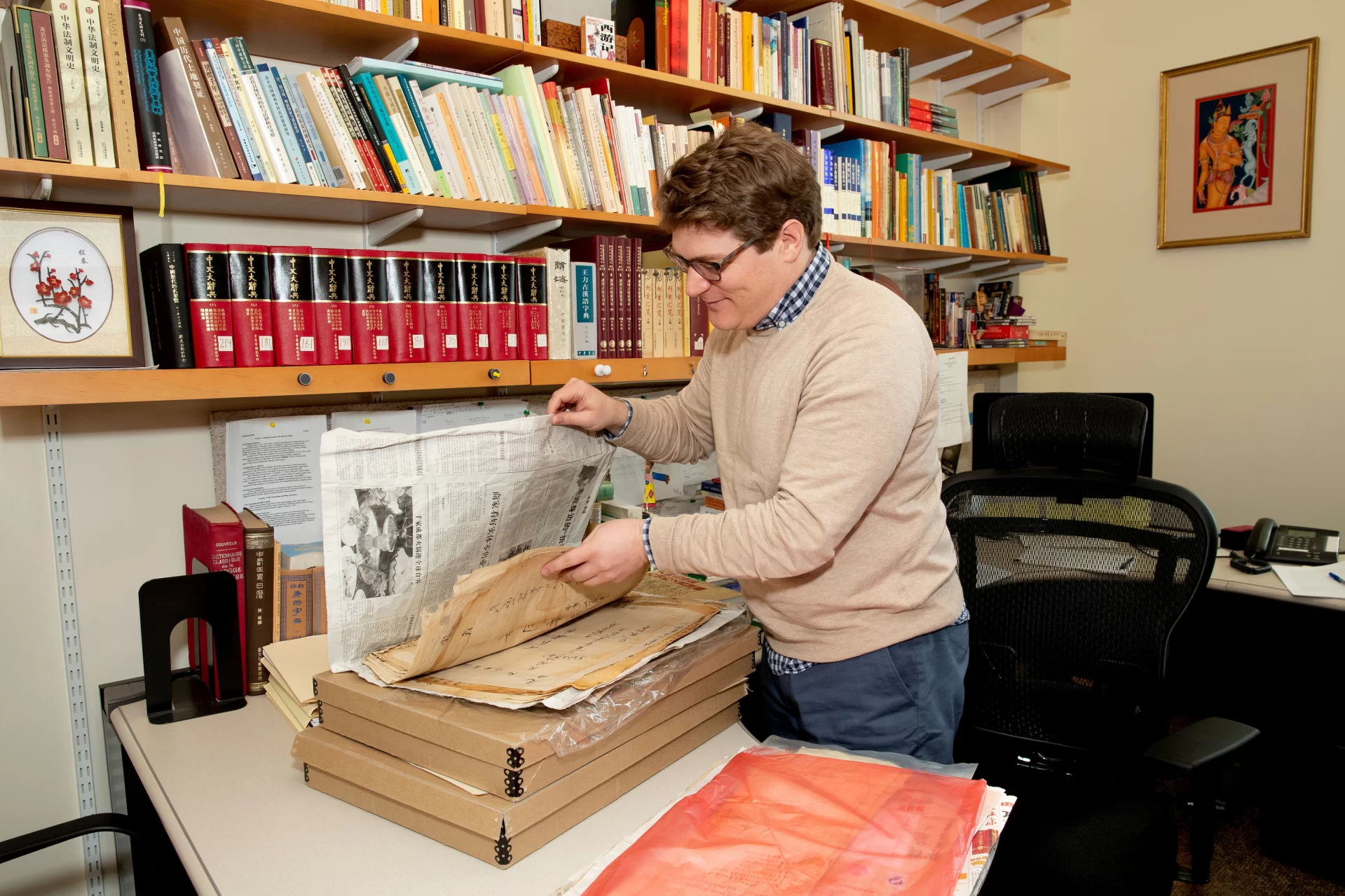
What it means to me to be a Bates professor: I teach history because I believe how we tell stories of the human experience matters. And at Bates, I get to learn every day from passionate staff, students, and faculty colleagues who make me think in new ways about our world and the innumerable ways to be human. They help me imagine new, different, ethical stories of our past.
“Doing history” at Bates, I’ve found, is about these connections right now — that chat over coffee, the class discussion after a visit to Olin, the meeting with a senior advisee about a newly discovered source for their thesis. All too often, and at other institutions, we historians “do history” alone, sitting in the archive or library and thinking we are writing our stories all by ourselves. It’s exciting to be at a place where I can do this work in community, and where the relationships with those I work and learn with really matter.
Mike Dacey, promoted to Associate Professor of Philosophy
Terminal-degree institution: Washington University in St. Louis (Ph.D.)
Areas of research: Animal minds, anthropomorphism, history of psychology, empiricism, scientific explanation, learning, modeling in psychology and neuroscience, parsimony/simplicity.
Courses taught include: “Philosophy of Animal Minds,” which explores the cognitive abilities of animals like great apes, corvids, and octopuses, in relation to minds both human and animal, through an interdisciplinary perspective including philosophy, psychology, neuroscience, and evolutionary biology.
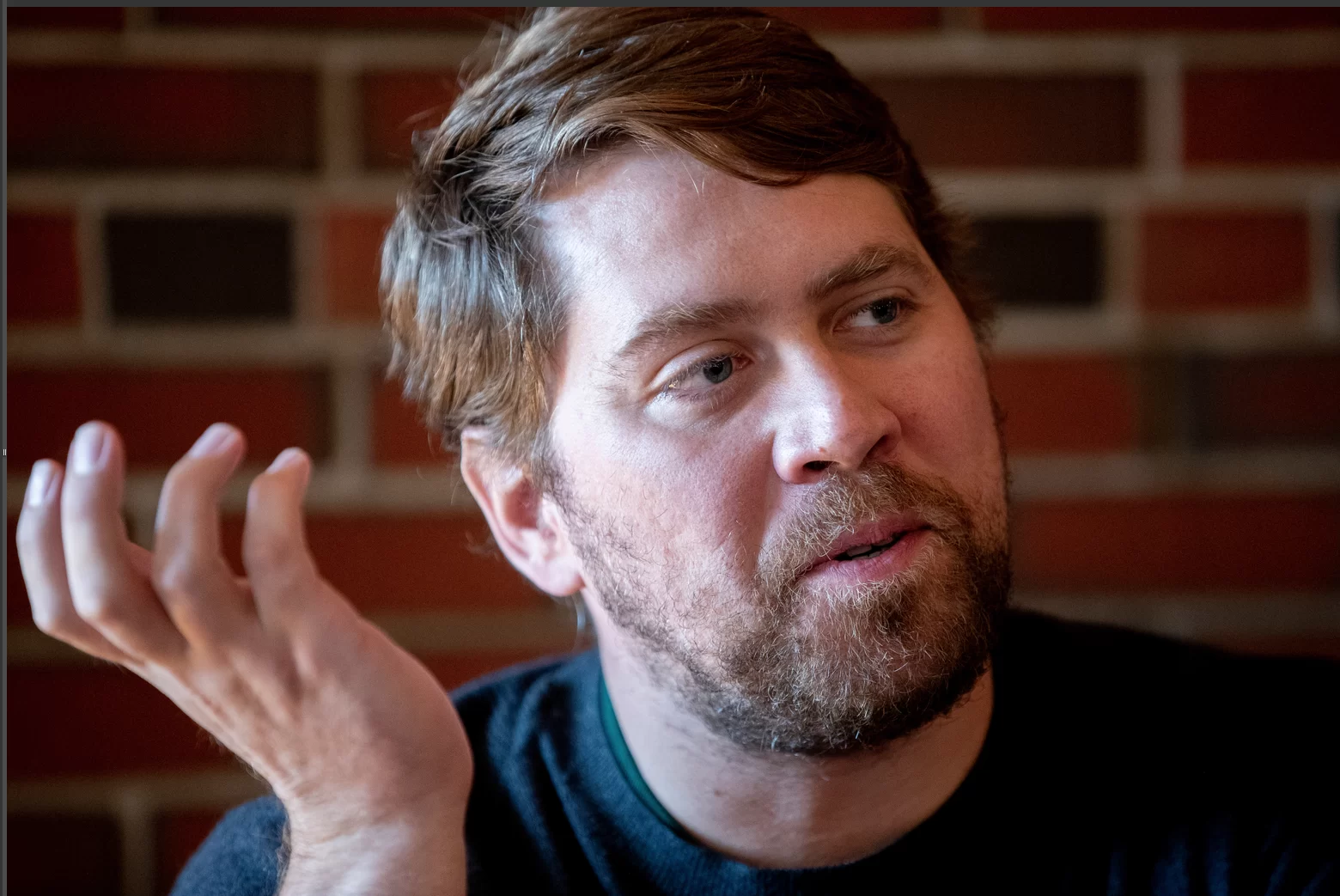
What it means to me to be a Bates professor: Being a member of a community of learners — students and faculty — with curious and open minds. The people at Bates that I get to work with and talk to have so much energy for new ideas, learning, exploration, and growing. It’s wonderful to be part of such a close-knit and supportive group, as we all try to learn about our world and make it better.
Tim Dugan, promoted to Associate Professor of Theater
Terminal-degree institution: Temple University (M.F.A) and Union College (M.A.T.)
Areas of research: Acting, Michael Chekhov technique, directing, improvisation, performing arts as individual and cultural expression, stage combat, voice and speech training for actors.
Courses taught include: “Advanced Acting,” which focuses on a psycho-physical acting approach, where students expand their imagination, explore their impulses, and creatively integrate their bodies and voices. The course emphasizes ensemble-building techniques to strengthen collaborative skills.
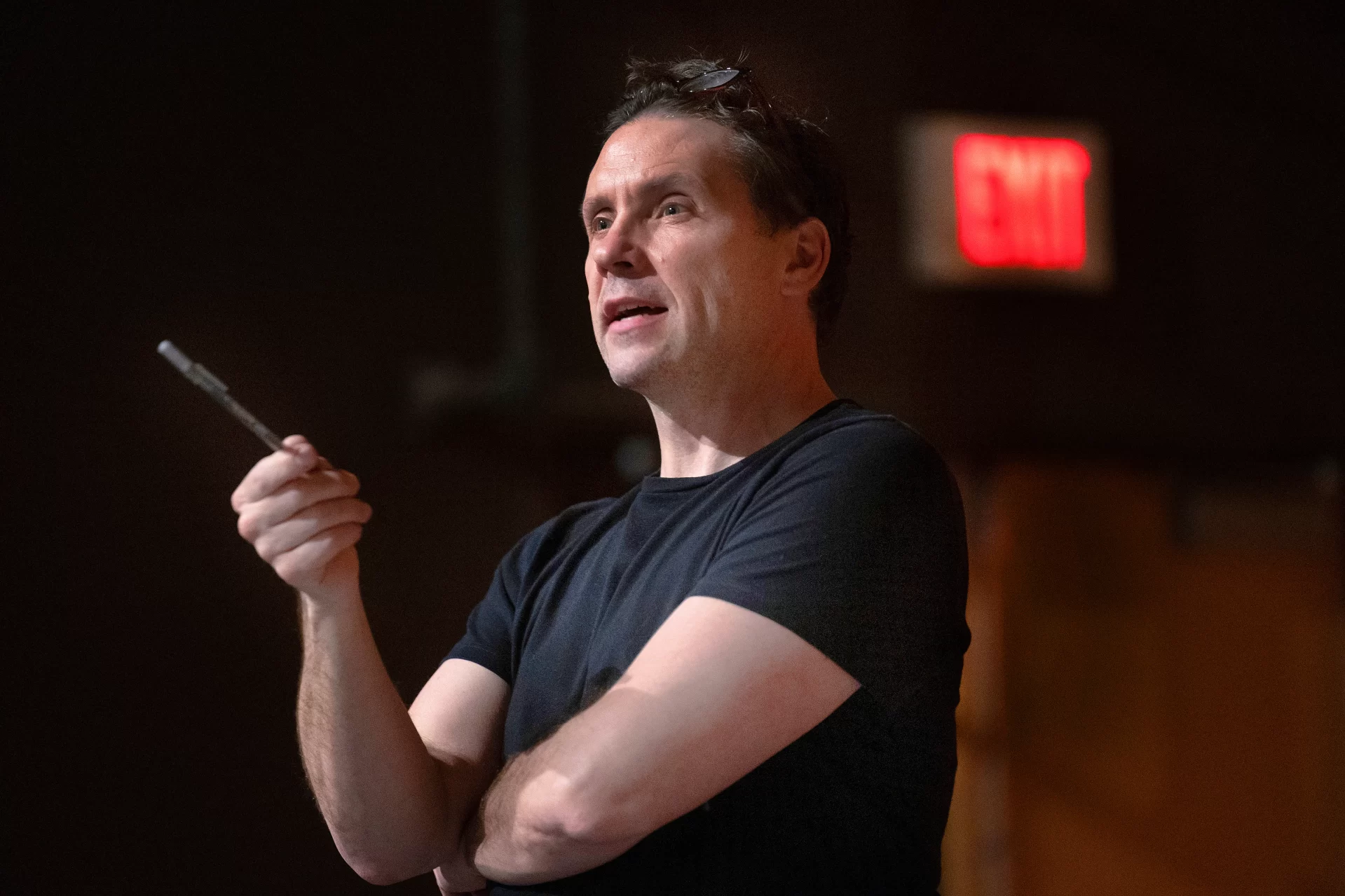
What it means to me to be a Bates professor: Being a Bates professor is about contributing to a supportive and inspired environment where I’m able to immerse in the process with students.
Witnessing them navigate, explore, take risks and, ultimately, embody their artistic choices is extremely rewarding. When we then reflect on that process in an ensemble-based setting, we’re all deeply curious about what is revealed. The experiential aspect of what I get to participate in on a daily basis inspires me, and every class and production I’m a part of inherently becomes its own collaborative. It’s a gift to share in that sense of community with these student artists, and also with colleagues across campus when building community engagement initiatives.
Carolina Gonzalez Valencia, promoted to Associate Professor of Art and Visual Culture
Terminal-degree institution: The School of the Art Institute of Chicago (M.F.A.)
Areas of research: Interdisciplinary modes of art and film production, including documentary film, animation, performance, drawing and installation, focusing on alternative and hybrid modes of non-fiction storytelling.
Courses taught include: “Animation II: Experimental Methods,” a study of analog and digital animation techniques. The course focuses on material exploration, research, linear/non-linear storytelling techniques, and sound design, culminating in the completion of a short animated video.
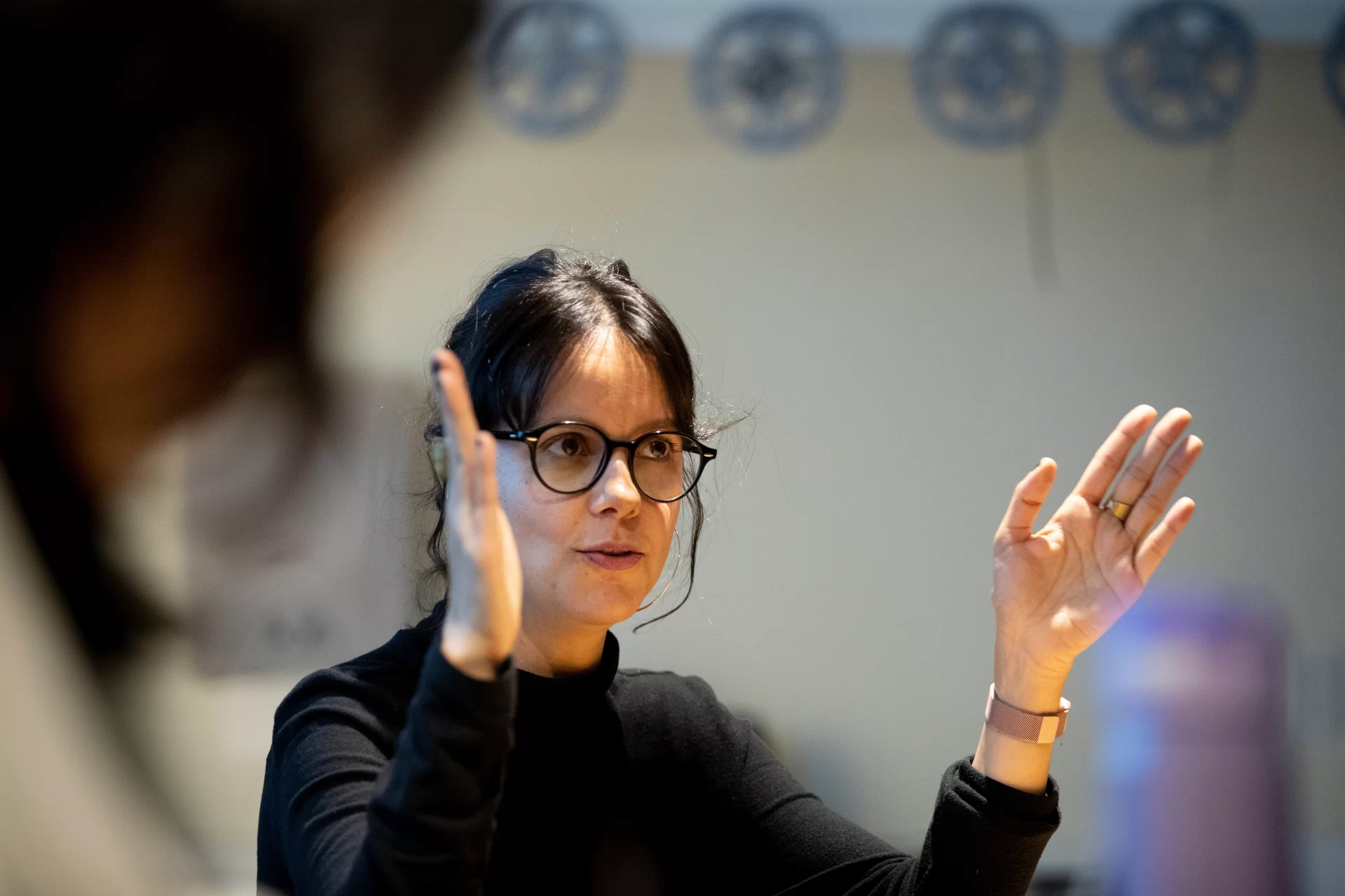
What it means to me to be a Bates professor: “Being a Bates professor means to be surrounded by connection and collaboration. All my students bring a range of interests, expertise, studies, and life experiences that nurture the art and films they want to produce. At Bates we can collaborate with different disciplines and modes of thinking and create connections that help us challenge, and contribute to our communities and the world in very meaningful and creative ways.”
Martin Kruse, promoted to Associate Professor of Biology and Neuroscience
Terminal-degree institution: University of Hamburg (Ph.D.)
Areas of research: Biochemistry, cell biology, computational neuroscience, electrophysiology, molecular biology, neuroscience.
Courses taught include: “Gene Editing in Biology and Neuroscience,” in which students analyze how genome editing techniques such as CRISPR/Cas9 have evolved, how they can be applied to study the role of individual genes or to alter mutant genes, and what approaches exist for the delivery of DNA-modifying enzymes into an organism.
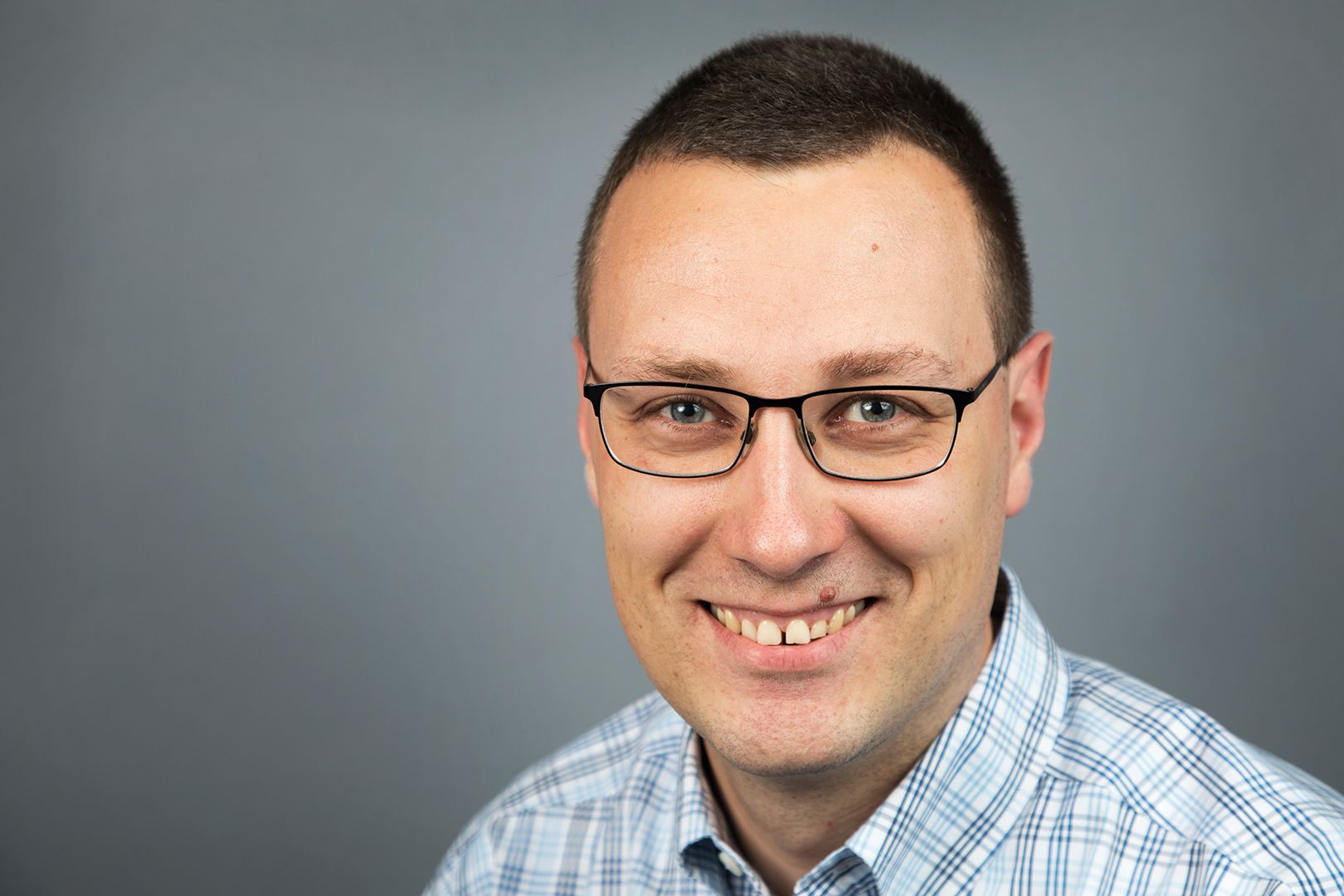
What it means to me to be a Bates professor: “Being a Bates professor means that I am surrounded by an incredible cohort of students and colleagues. They all challenge me constantly to learn something new and energize me with their curiosity and dedication to their interests and work. It is a privilege for me to work alongside them and their ideas and questions help me become a better teacher and scientist.”
Geneva Laurita, promoted to Associate Professor of Chemistry and Biochemistry
Terminal-degree institution: Oregon State University (Ph.D.)
Areas of research: Solid state chemistry; structure-property relationships of inorganic solids, particularly in energy and electronics-related technology; and the characterization of atomic interactions and how they affect physical properties.
Courses taught include: “Inorganic Chemistry,” study of the wide-ranging aspects of inorganic chemistry, including reactivity of inorganic compounds, crystal field theory, and solid state chemistry.
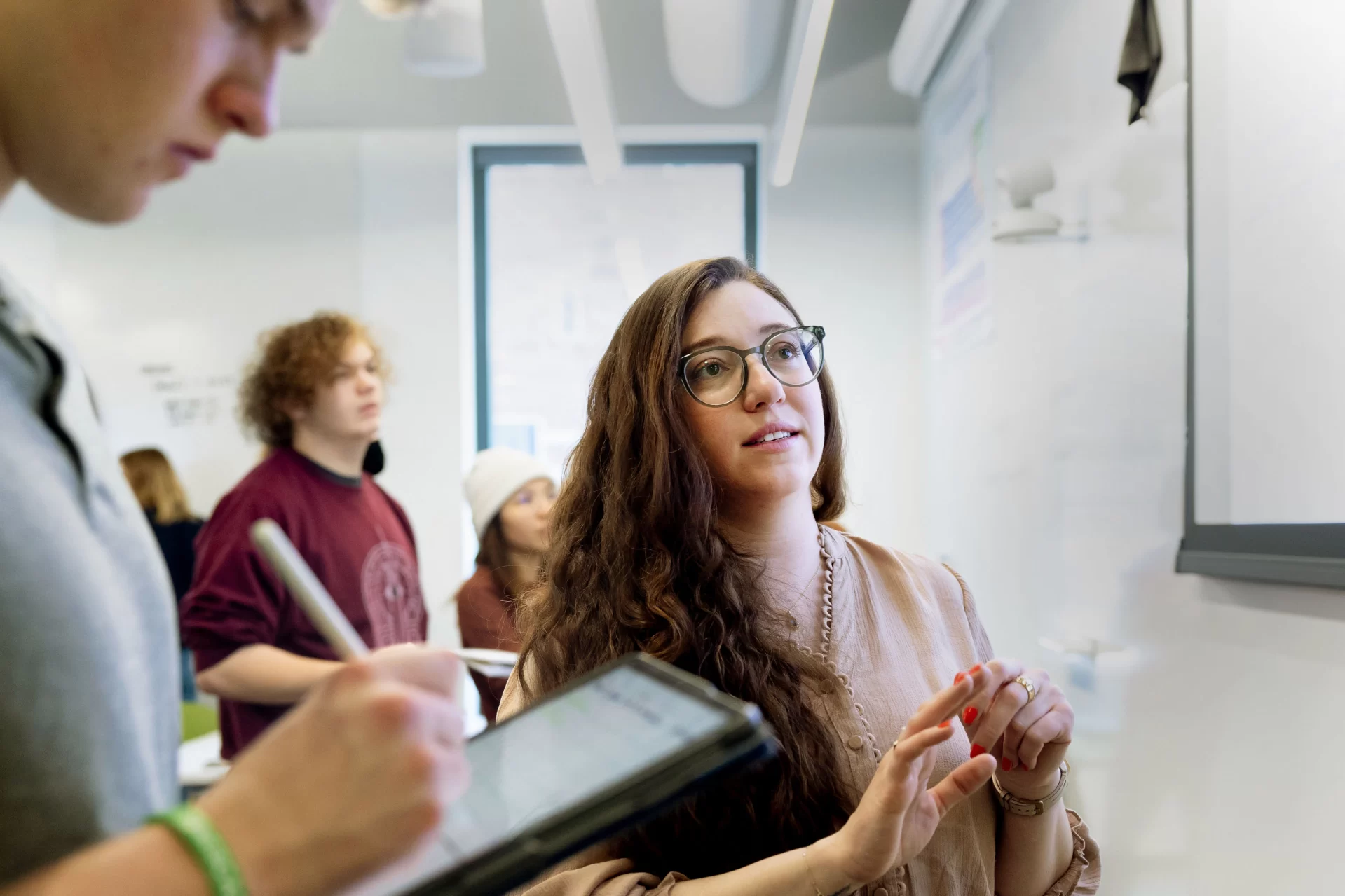
What it means to me to be a Bates professor: Being a Bates professor means that I have the opportunity to explore and grow in all the areas that I am passionate about: conducting novel research with undergraduate collaborators, practicing new ideas in my teaching and pedagogy with remarkably clever and enthusiastic students, mentoring students at various stages during their time at Bates, and working with amazing staff and faculty colleagues across the college.
I feel fully supported by the community at Bates in these endeavors and have a sense that what we get to do here is unique to the environment provided by Bates.
Andrew Mountcastle, promoted to Associate Professor of Biology
Terminal-degree institution: University of Washington, Seattle (Ph.D.)
Areas of research: Aerodynamics, biomechanics, functional morphology, science communication, and the physiology and ecology of flying insects.
Courses taught include: “Sponge Fluid Dynamics,” which uses an approach known as “lab-based biological inquiry” to build skills through experimentation and observation, as well as in reading scientific literature, formulating and testing hypotheses, analyzing data, interpreting results, communicating in disciplinary style, and working in teams.
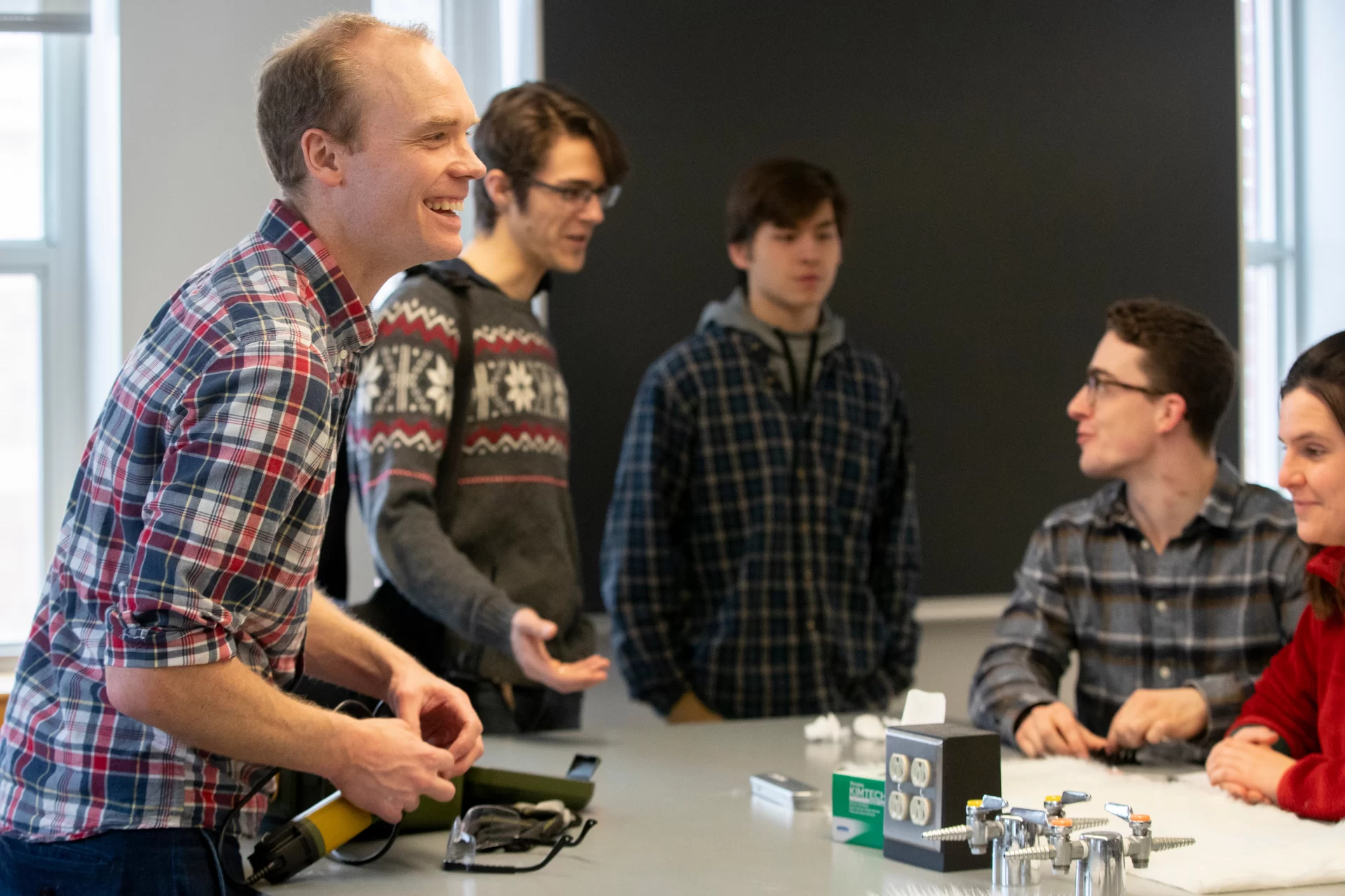
What it means to me to be a Bates professor: I get to work with curious, thoughtful, and creative students on a daily basis, be challenged and inspired by them, and bear witness to their intellectual and personal growth and discovery. I can’t imagine a better gig than this.
Patrick Otim, promoted to Associate Professor of History
Terminal-degree institution: University of Wisconsin-Madison (Ph.D.)
Areas of research: African intellectual history, health and healing, crime and punishment, and transitional justice.
Courses taught include: “Health and Healing in Africa,” which addresses the persistent perception in the West, born in colonialism, that Africa is a “diseased continent,” which ignores how Africans have sought to create and maintain healthy communities over time, including how Africans have diagnosed and treated ailments in the precolonial era.
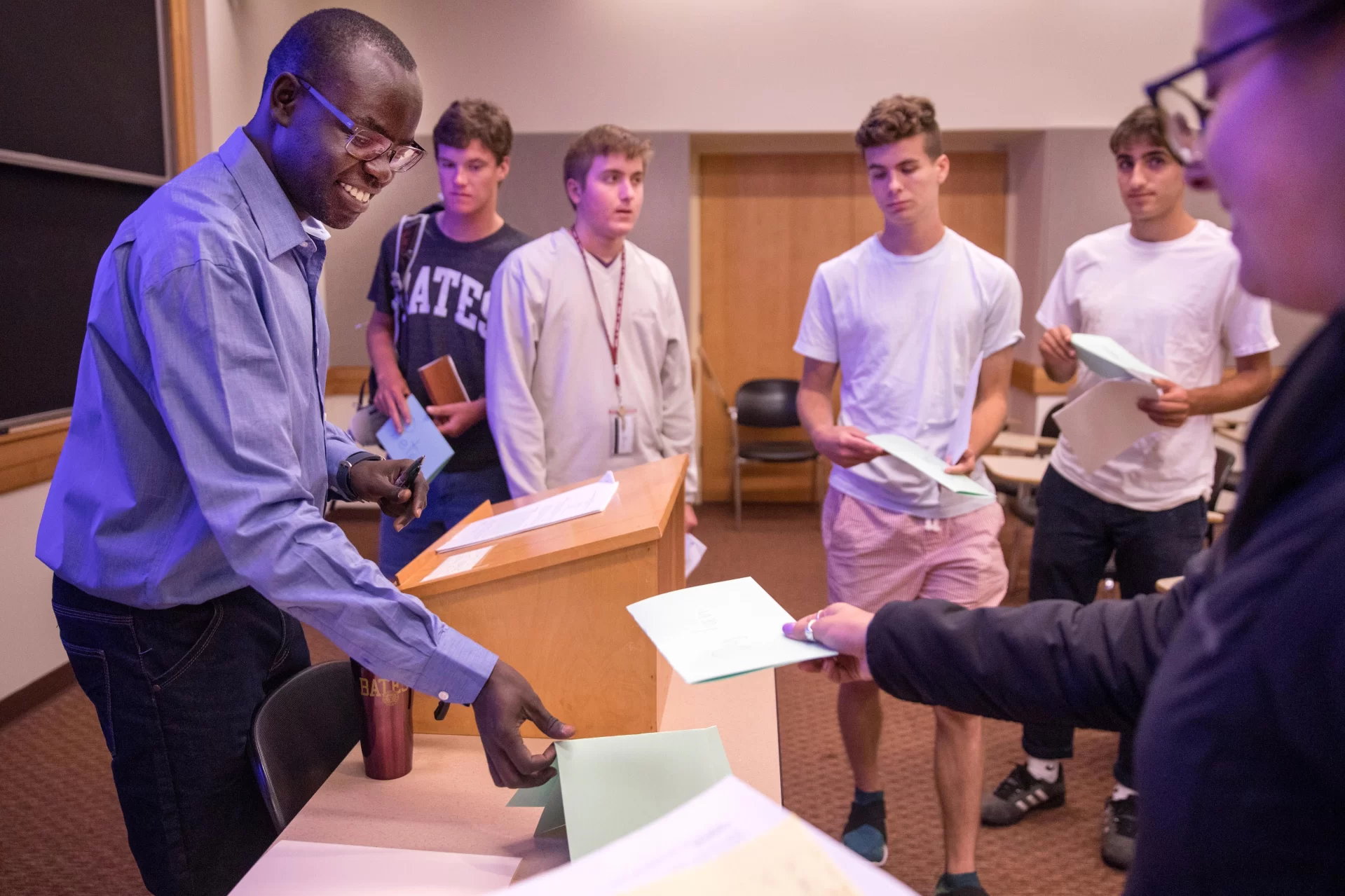
What it means to me to be a Bates professor: For me being a Bates professor means interacting with intelligent and dedicated faculty, staff, and students from different backgrounds, beliefs, cultures, and experiences.
More specifically, the job allows me to do research and contribute new knowledge in my field, and allows me to teach and empower my students with new knowledge and skills to better understand how historical figures understood themselves, lived, made choices, and shaped their own world. And finally, being a Bates professor for me means extending my expertise beyond campus — working with NGOs, journalists, and activists to create a better world for everyone to thrive.
Stephanie Pridgeon, promoted to Associate Professor of Hispanic Studies
Terminal-degree institution: Emory University (Ph.D.)
Areas of research: 20th- and 21st-century Latin American literature and film, cultural studies, documentary, feminist theory, gender and sexuality, Jewish studies, Latin America, literary theory, Marxist theory, memory studies, political culture, race and ethnicity, testimony.
Courses taught include: “Screening Citizenship: Jewish Latin American Film,” which considers films from throughout Latin America made by Jewish directors, including how film is used as a vehicle to explore and represent issues of identity, belonging, immigration, and assimilation that have long characterized Jewish experiences in Latin America.
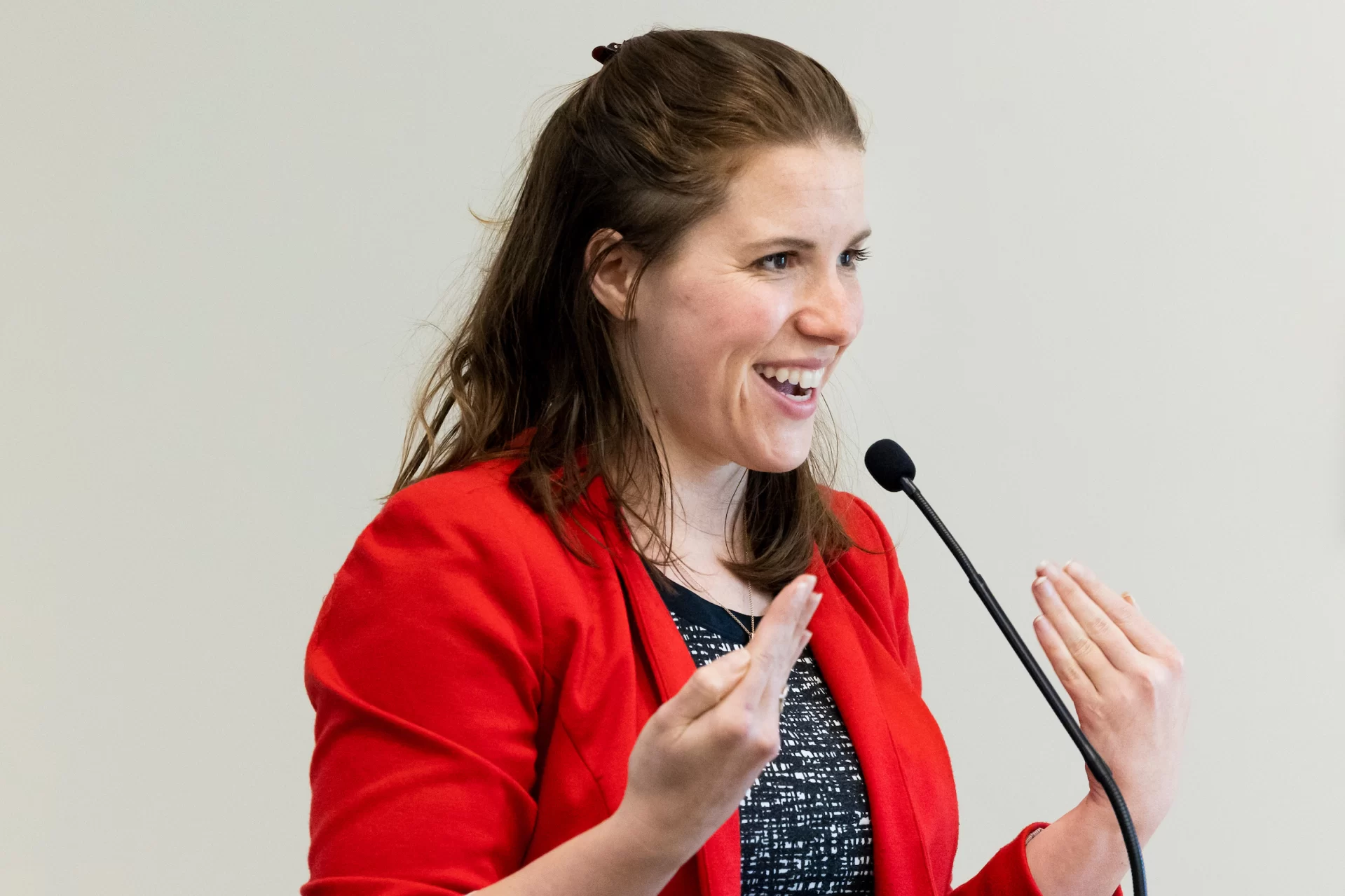
What it means to me to be a Bates professor: I believe that fiction and storytelling have the capacity to transform lives. And for me, being a member of the Bates faculty means sharing stories with students and my staff and faculty colleagues.
On a given day, I might witness a student who is mesmerized by a short story in my classroom, hear a story from an advisee about a challenge they are facing, see a documentary film a colleague has made, or listen to another colleague’s research in progress that tells a story no one ever knew before. And I gain a deeper appreciation of the infinite stories and the infinite ways of telling them that exist in the world and on campus.
Dale Chapman, promoted to Professor of Music
Terminal-degree institution: University of California, Los Angeles (Ph.D.)
Areas of research: 20th-century American music, African American music, American studies, critical race theory, cultural studies, historical musicology, jazz studies, popular music studies.
Courses taught include: “Music in Contemporary Popular Culture,” which addresses developments in popular music, jazz, and “art” music over the last 30 years, examining how trends running from minimalism to hip hop and MTV comment upon this cultural environment.
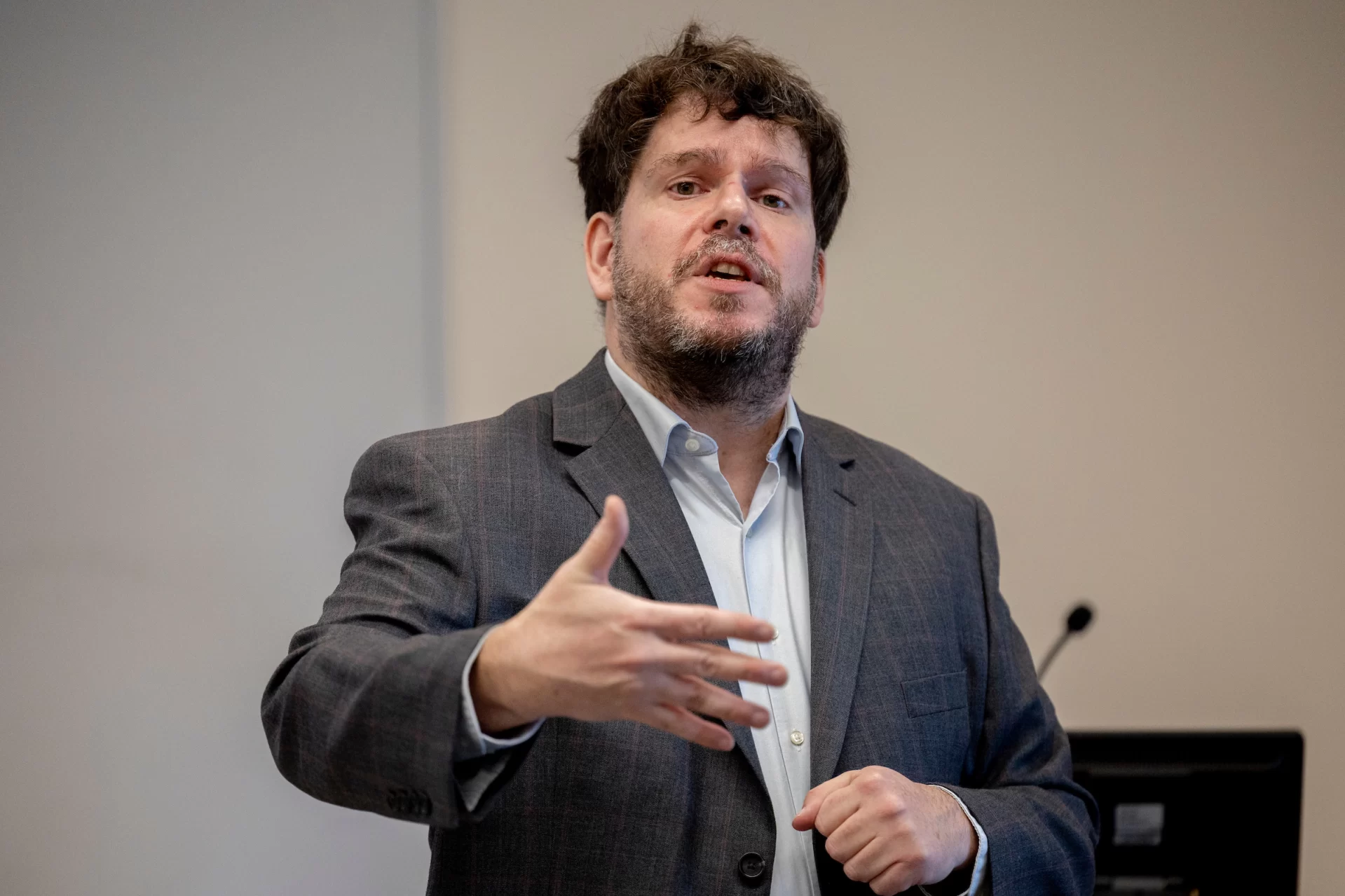
What it means to me to be a Bates professor: For me, the ability to teach students about this music that I feel so passionate about — to speak to its connection to crucial issues of social identity, cultural meaning, and its role in affirming, contesting, and upending received ideas about the world — has always been a tremendous privilege. I’m excited to continue to work closely with Bates students in engaging with music, which brings us close to the texture of life.
Susan Stark, promoted to Professor of Philosophy
Terminal-degree institution: Georgetown (Ph.D.)
Areas of research: Ethics, moral psychology, feminism, social philosophy.
Courses taught include: “Moral Luck and Social Identity,” which examines the problem of moral luck through historical and contemporary readings. The course focuses on racism through consideration of the Holocaust in Germany and Institutionalized Slavery in the United States. The course also considers moral responsibility for implicit bias, the nature of evil, and the possibility of repairing historic injustices.
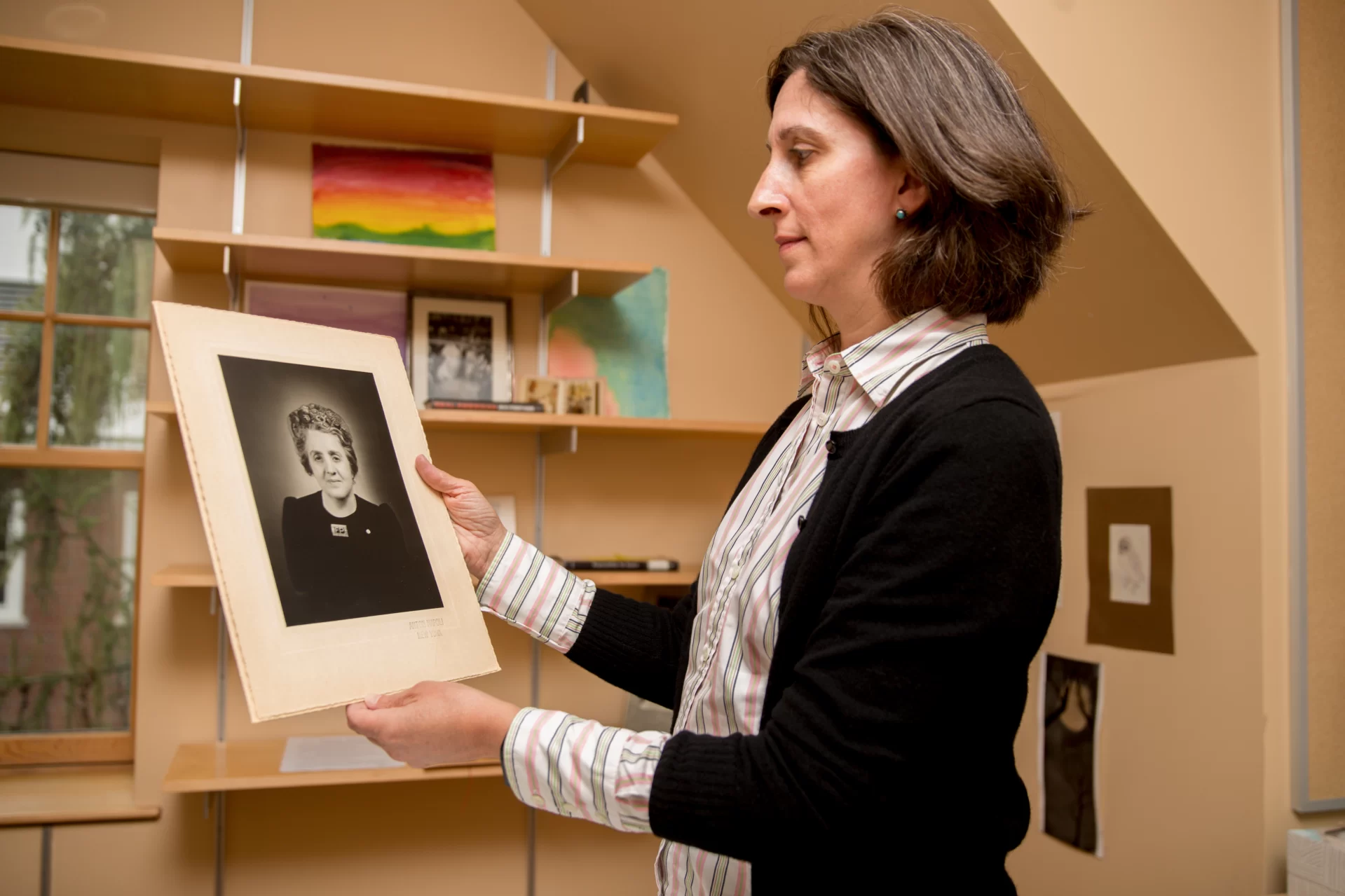
What it means to me to be a Bates professor: To me, being a Bates professor means forming valuable relationships with students, staff, and faculty. I learn so much from our community everyday and have grown immeasurably during my time at Bates. I am so grateful for this amazing Bates community.
